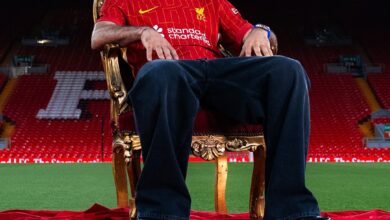A report by the Egyptian Medical Association for the Study of Obesity conducted earlier this year spotlighted the problem of childhood obesity when it estimated that an alarming 15 percent of young Egyptian children are obese.
While much can be done in Physical Education departments in schools, parents are in the position to significantly improve their children's health through positively influencing lifestyle and eating habits. The challenge for you as parents is to convince your child to commit to 60 minute exercise sessions as an integral part of their daily routine. With an myriad of objections at your child’s disposal, here are a number of rebuttals especially designed to defeat your child’s inevitable stubbornness:
“I am a girl. I don’t play sports.”
Girls may think working out or joining a sports team is restricted to members of the opposite sex. Giving some credence to that thought, most physical education courses in schools are, in fact, suited for boys. But girls can find many activities, such as dancing or martial arts, that exist outside of school.
“It's not cool.”
Yeah. Try telling that to Michael Phelps, 14-time American gold medalist in swimming, or Mohamed Abu-Treka, star Egyptian football player, or Maria Sharapova, three time grand slam winner in tennis. We may never be able to reach the top, but getting fitter means a healthier lifestyle and an increased sense of general well being. Tell your child that the people who tell them physical activity isn’t cool are usually the ones unable to ride a bike without falling off.
“I don’t want muscles.”
Whereas many boys aspire to the hulking Arnold Schwarzenegger, many girls aspire to the cadaverous Audrey Hepburn. It is true that you should not encourage heavy weightlifting before the child is fully grown because such activity could create hormonal imbalances that cause future problems. Full growth is generally achieved at the age of 18 years for women and 21 years for men.
Not all workout activities, however, promote significant muscles development. Bodybuilders and gym enthusiasts adhere to special programmes that include special activities and meals to increase muscle mass, so reassure your daughter that she isn’t in danger of bulking up.
“I would rather play on my PlayStation 3. Thank you very much!”
It doesn’t have to be either/or. You can reward your child with an extra hour of video games if they agree to some physical activity.
“I don’t want to be part of a team.”
That might be a problem if you value fitness for its social aspect. However, pressuring your child to join a team will not resolve a child’s isolation and could compound it if they have no natural desire to participate. Encouraging your child to embrace a physical activity that they like, therefore, is paramount, and does not necessarily require the need to involve other playmates. Consider swimming, running or biking, for example.
Finally, you should monitor the program so as to reinforce positive aspects of the activity while finding ways to offset negatives aspects. Your child should focus on conducting activities of moderate intensity that cause them to work up a bit of sweat and get slightly out of breath. Putting too much stress on the child by demanding that they embrace something too demanding promotes future injuries and other problems.
Strong bones are one of the most important features of your child’s health, so at least twice a week, you should include some activities that build bone strength. Swimming and biking have a great impact on the health of your child’s bones because such activities require the child to lift their own body weight without applying stress on the bone to the point of breakage.
“You don’t do it! Why would I?”
Exasperated from your irrefutable claims, your child may then shout in your face and assert that your job as a role model leaves something to be desired. Your child is right. Your child needs to be inspired by your own example. So, take up the challenge. Be a family trailblazer, and light the way! At worst, your child will remain inactive, but at least your own health will benefit in the process.




